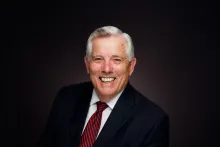World News and Trends: Will America coexist with a nuclear Iran?
With the knowledge that Iran now has nuclear capabilities, will America continue to work alongside?
Diligent diplomatic efforts are being made to avoid any kind of Western military conflict with Iran. When questioned during her recent visit to Britain, U.S. Secretary of State Condoleezza Rice emphasized the importance of reliance on diplomacy to achieve the goal of persuading the Iranian leadership to abandon any activities that would lead to creating a nuclear arsenal.
The recently revised National Security Strategy statement says, "This diplomatic effort must succeed if confrontation is to be avoided" (The New York Times, emphasis added throughout).
The Bush administration recently reaffirmed its policy to possibly employ preemptive military strikes against potential threats to American national security. As recently as April 1, the United States warned that "an American-led attack on Iran's nuclear installations is 'all but inevitable' if the country fails to comply with the United Nations over its nuclear programme" (The Sunday Express).
How the Islamic world might react is a major wild card—as, for that matter, is the possible reaction from supposed continental European allies like France and Germany.
According to the Financial Times, "Germany's foreign minister has urged the Bush administration to hold direct talks with Iran over its nuclear programme." This suggestion has been rejected in favor of collective diplomacy with European nations in the forefront. That this was even suggested is taken as a sign that the European powers privately have little confidence in the ability and capacity of the UN to restrain Iran. Hard choices are ahead for Western leadership, especially the United States.
Some observers warn of unpleasant surprises perhaps much like those that have emerged in Iraq . This much we do know: Serious conflicts in the Middle East will eventually be the spark that ignites a time of unprecedented world troubles leading to the second coming of Jesus Christ. This scenario is laid out in our free booklet The Middle East in Bible Prophecy. (Sources: The Sunday Telegraph, The Sunday Times, Financial Times [all London], The New York Times.)




